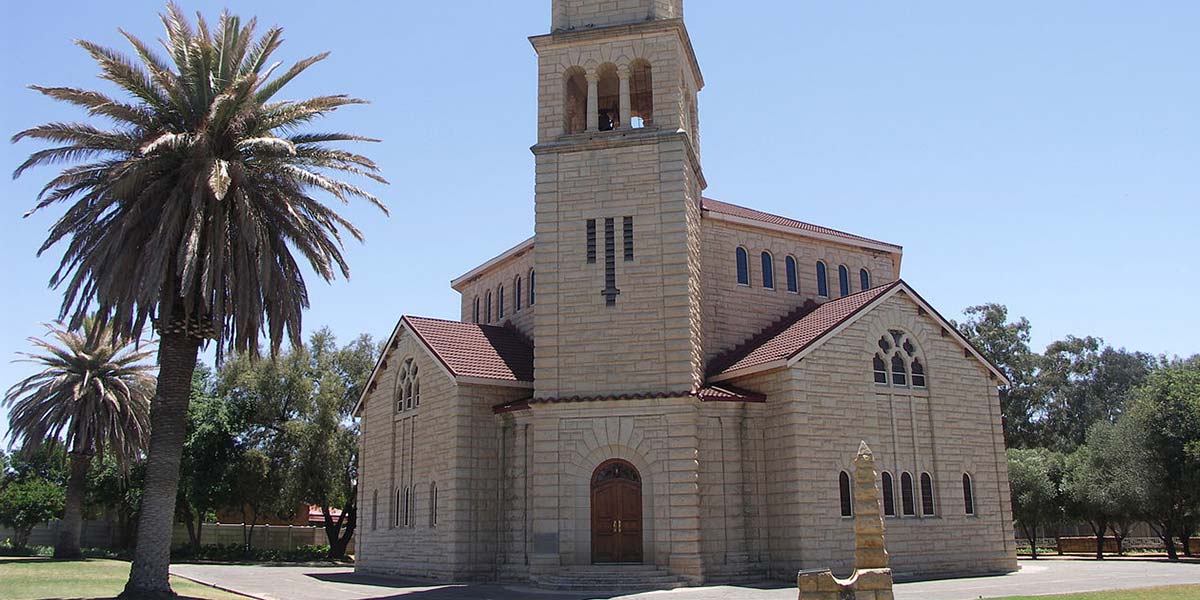Anti-LGBTQ Christian groups condemn Dutch Reformed Church ruling
 Anti-LGBTQ Christians are outraged that the Dutch Reformed Church (also known as the NG Kerk) has been ordered to stop discriminating against same-sex couples and queer clergy.
Anti-LGBTQ Christians are outraged that the Dutch Reformed Church (also known as the NG Kerk) has been ordered to stop discriminating against same-sex couples and queer clergy.
Last week, the High Court in Pretoria ruled that the Dutch Reformed Church (DRC) must reverse a November 2016 decision blocking individual church councils from choosing to recognise and bless same-sex relationships and to allow non-celibate gay ministers.
It not only found that the decision by the church’s General Synod was taken unprocedurally but, most significantly, it also asserted that the church’s discrimination against queer people is unconstitutional.
In a statement on Tuesday, Freedom of Religion South Africa (FORSA) insisted that the ruling “does not force all churches to marry gays.” FORSA, which appeared as a “Friend of the Court” in the case, is an anti-LGBTQ Christian lobby group that supports discrimination against sexual and gender minorities on the basis of ‘religious freedom.’
Commenting on the judgment, FORSA Executive Director Michael Swain said that, “the findings on the constitutional aspects are very concerning from a religious freedom point of view and pose a severe threat to the institutional autonomy of churches and religious groupings.”
He believes, however, that the matter was “case specific” and does not universally apply to all churches and denominations in South Africa. “The judgment does however set a dangerous precedent,” he claimed. “When the State starts telling society (including the church) how they should think and believe, we may find ourselves on a dangerous path towards totalitarianism.”
Longtime anti-LGBTQ zealot Pastor Errol Naidoo said in his Family Policy Institute newsletter that the ruling was a victory for the “LGBTQ movement’s quest to neutralise the Christian Church.” He said that it was intended to “strip the Christian Church of its autonomy to make decisions regarding its Biblical beliefs and convictions.”
Religion not an excuse to abuse human rights
The Rev Laurie Gaum, one of the applicants in the case, dismissed these arguments, noting that no one would accept a church, for example, practicing racist policies or doctrines under the guise of religious freedom. “It is a reminder and a wake-up call to the church and religion in general that they can’t hide behind religious freedom to commit human rights violations,” he told MambaOnline. “If we can’t take responsibility for our own behaviour we need to receive help from elsewhere, and in this case it came from the courts. And I thank God for that!”
Constitutional expert Pierre De Vos welcomed the ruling, writing on his blog that it “suggests a shift may be occurring in judicial thinking on the topic.” He said that the “courts must and will limit religious freedom rights to advance other, more pressing, concerns or to protect the marginalised and the vulnerable who are the victims of harmful religious beliefs and practices.”
He does, nevertheless, seem to agree with Swain that the constitutional aspect of the court’s ruling “may be obiter dictum (an opinion expressed in a written judgement, but not essential to the decision and therefore not binding on other courts)…”
De Vos noted that, “What the judgment does suggest, is that courts might slowly be tilting towards the protection of individuals harmed by religious beliefs and practices and may in future be less ready to give religious institutions a free pass when they do discriminate.”
As for the church itself, Gustav Claassen, General Secretary of the DRC, said that it “has taken note of the judgment of the court and respects it.” He added that, “the church will, of course, study the ruling with our legal team over the coming days and then decide whether there are reasons to apply to appeal.”
The DRC has 15 days to appeal the decision.
Leave a Reply